 New anime seasons tend to be like earthquakes – rather than slow and steady the stress builds up and explodes on a single day. That’s usually Sunday, and this winter was no exception. Just about half the series on my preview dropped in 24 hours, including the two non-sequels I had the most interest in. One was Sono Bisque Doll of course, and Baraou no Souretsu is the other. The first didn’t disappoint and Requiem of the Rose King didn’t either, though I suspect it’s going to have a much tougher time connecting with the Western anime audience.
New anime seasons tend to be like earthquakes – rather than slow and steady the stress builds up and explodes on a single day. That’s usually Sunday, and this winter was no exception. Just about half the series on my preview dropped in 24 hours, including the two non-sequels I had the most interest in. One was Sono Bisque Doll of course, and Baraou no Souretsu is the other. The first didn’t disappoint and Requiem of the Rose King didn’t either, though I suspect it’s going to have a much tougher time connecting with the Western anime audience.
 This show is based on a shoujo manga by Kanno Aya, but if you didn’t know better you might think it was a Gonzo original from 15 years ago. Shoujo fantasy don’t get adapted all that often anymore to begin with, and this one really does feel like a relic of an earlier age. The pairing with J.C. Staff, with their signature washed-out color palette, does nothing to dispel that impression. It’s rare enough these days to get a non-CGI J.C. Staff series, and as you’d expect the budget is clearly limited here. But honestly I thought the premiere looked decent, for all its still shots – director Suzuki Kentarou is no household name, but he imparts a fair amount of style and flair to the proceedings.
This show is based on a shoujo manga by Kanno Aya, but if you didn’t know better you might think it was a Gonzo original from 15 years ago. Shoujo fantasy don’t get adapted all that often anymore to begin with, and this one really does feel like a relic of an earlier age. The pairing with J.C. Staff, with their signature washed-out color palette, does nothing to dispel that impression. It’s rare enough these days to get a non-CGI J.C. Staff series, and as you’d expect the budget is clearly limited here. But honestly I thought the premiere looked decent, for all its still shots – director Suzuki Kentarou is no household name, but he imparts a fair amount of style and flair to the proceedings.
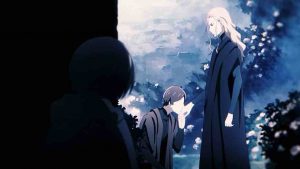 Fundamentally, there’s no substitute for a good story. And that of Richard III is obviously a good one, having inspired so many re-tellings over the centuries. Most famously of course that of the Bard himself, who gets a shout-out in the credits here. Richard Plantagenet was an important historical figure – the last Plantagenet king, the last monarch of the Middle Ages – and the War of the Roses is one of the most important periods in English history. But Richard was a larger than life figure above and beyond his station, which surely inspired writers as much as the events themselves.
Fundamentally, there’s no substitute for a good story. And that of Richard III is obviously a good one, having inspired so many re-tellings over the centuries. Most famously of course that of the Bard himself, who gets a shout-out in the credits here. Richard Plantagenet was an important historical figure – the last Plantagenet king, the last monarch of the Middle Ages – and the War of the Roses is one of the most important periods in English history. But Richard was a larger than life figure above and beyond his station, which surely inspired writers as much as the events themselves.
 Shakespeare took some liberties (as he always did) with Richard’s life story, and Barou no Souretsu takes even more. Here, Richard (nobody can do androgyny like Saiga Mitsuki) is not deformed (as his skeleton eventually proved he was) but a hermaphrodite (because, you know, manga). Few know his secret, but his mother (Hisakwa Aya) obviously does – and she reviles him as hell-spawn. So did history for a good while after his death, but it’s worth remembering the old adage that it’s the winning side which writes it. And the Tudors were the winning side, thus able to paint the villainous portrait of Richard III which has defined him ever since.
Shakespeare took some liberties (as he always did) with Richard’s life story, and Barou no Souretsu takes even more. Here, Richard (nobody can do androgyny like Saiga Mitsuki) is not deformed (as his skeleton eventually proved he was) but a hermaphrodite (because, you know, manga). Few know his secret, but his mother (Hisakwa Aya) obviously does – and she reviles him as hell-spawn. So did history for a good while after his death, but it’s worth remembering the old adage that it’s the winning side which writes it. And the Tudors were the winning side, thus able to paint the villainous portrait of Richard III which has defined him ever since.
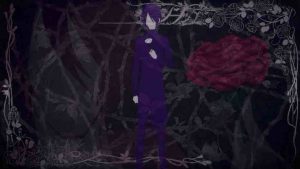 Here, Richard is desperate to prove his worth to his namesake father (Hayami Sho, who seems a necessity for a series like this), locked in eternal struggle for the throne with Henry VI of Lancaster (Midorikawa Hikaru) – viewed by York partisans as a usurper. Richard Duke of York knows the truth about his son but clearly loves him anyway – his older brothers probably don’t know, but treat their slight younger brother with gently-condescending affection. On one of their expeditions to the forest (with his future wife, Anne Neville) Richard rescues a white boar piglet – a nod to the fact that the white boar which become his symbol and regalia.
Here, Richard is desperate to prove his worth to his namesake father (Hayami Sho, who seems a necessity for a series like this), locked in eternal struggle for the throne with Henry VI of Lancaster (Midorikawa Hikaru) – viewed by York partisans as a usurper. Richard Duke of York knows the truth about his son but clearly loves him anyway – his older brothers probably don’t know, but treat their slight younger brother with gently-condescending affection. On one of their expeditions to the forest (with his future wife, Anne Neville) Richard rescues a white boar piglet – a nod to the fact that the white boar which become his symbol and regalia.
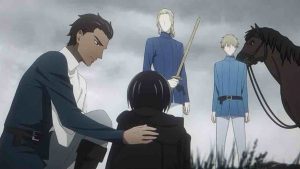 There’s some other fanciful stuff here too – like Richard seeing the apparition of Joan of Arc (Aoi Yuuki) in the woods. And in the aftermath of the Lancaster siege of the family estate, Richard has a meeting with the pious Henry, passing himself off as a simple shepherd, suggesting a possible future romance angle. As with Will but even more so Barou no Souretsu dances a sort of waltz with the historical record, and the result for me at least is consistently engaging. There’s no substitute for a good story.
There’s some other fanciful stuff here too – like Richard seeing the apparition of Joan of Arc (Aoi Yuuki) in the woods. And in the aftermath of the Lancaster siege of the family estate, Richard has a meeting with the pious Henry, passing himself off as a simple shepherd, suggesting a possible future romance angle. As with Will but even more so Barou no Souretsu dances a sort of waltz with the historical record, and the result for me at least is consistently engaging. There’s no substitute for a good story.
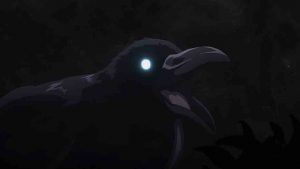 Setting aside questions of budget, the big Damoclean sword hanging over this adaptation is simple mathematics. The manga is on 16 volumes and counting, and the anime is slated for 12 episodes (note: there’s some discrepancy on this depending on the source – it may be 24, which would certainly help). And it’s not like you can craft an original ending here, really, given the nature of the story. But those are bridges to be crossed when we come to them, I suppose, and in what looks like a very lean season I’m in no position to turn up my nose at a good show over them. I enjoyed this premiere a lot, and I’m curious as to what a historical shoujo take on the War of the Roses ends up looking like.
Setting aside questions of budget, the big Damoclean sword hanging over this adaptation is simple mathematics. The manga is on 16 volumes and counting, and the anime is slated for 12 episodes (note: there’s some discrepancy on this depending on the source – it may be 24, which would certainly help). And it’s not like you can craft an original ending here, really, given the nature of the story. But those are bridges to be crossed when we come to them, I suppose, and in what looks like a very lean season I’m in no position to turn up my nose at a good show over them. I enjoyed this premiere a lot, and I’m curious as to what a historical shoujo take on the War of the Roses ends up looking like.
ED: Akumu” (悪夢, “Nightmare”) by ZAQ


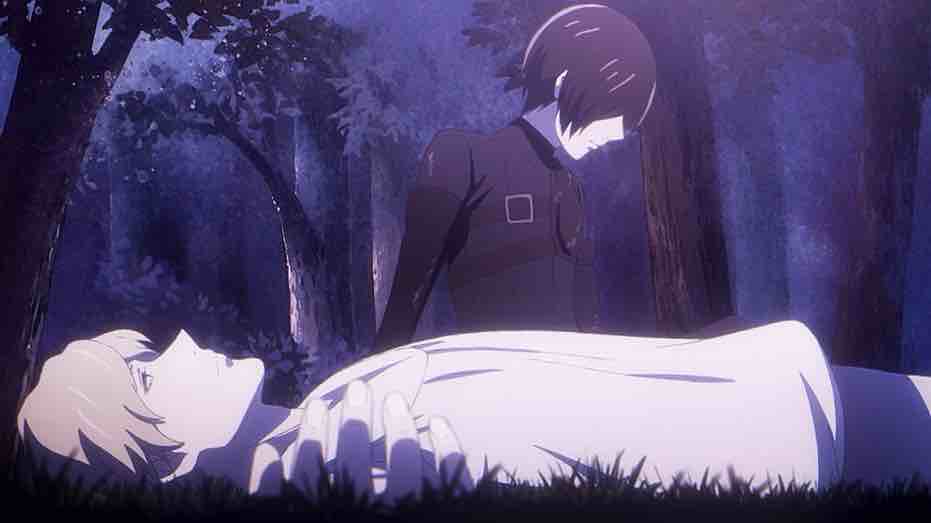
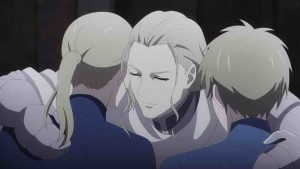
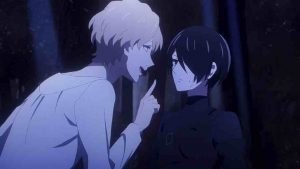
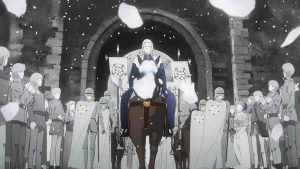

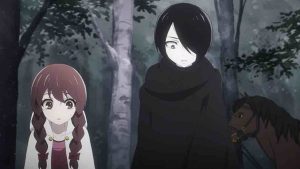
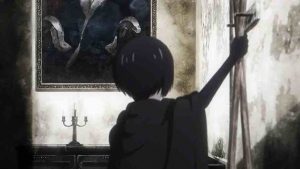
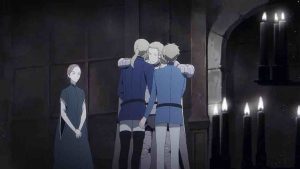


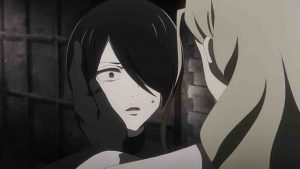


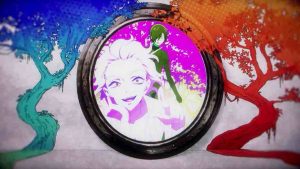
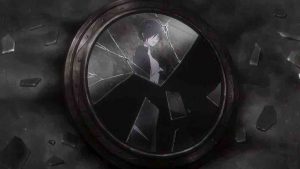
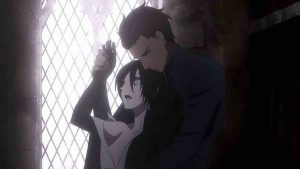
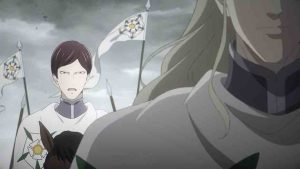
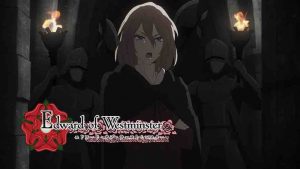
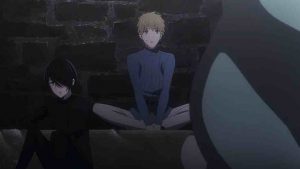
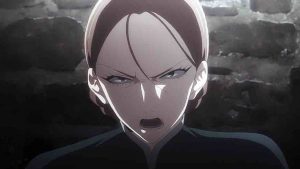


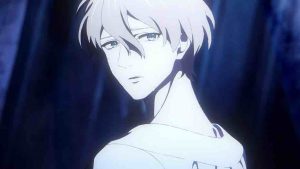


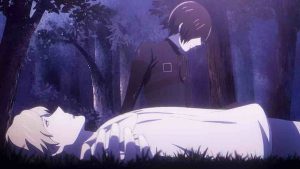

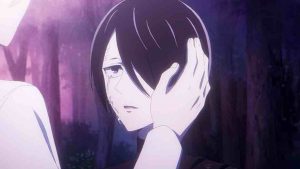

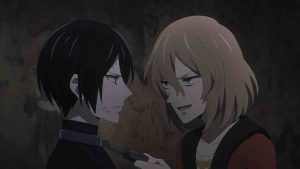
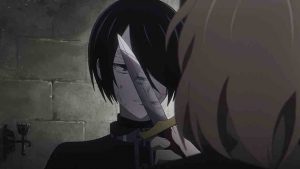
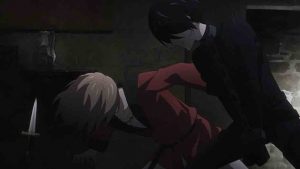
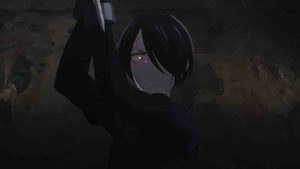
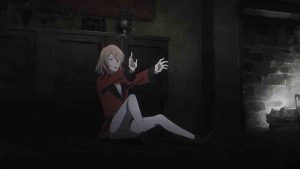
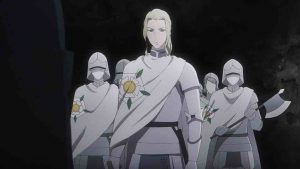
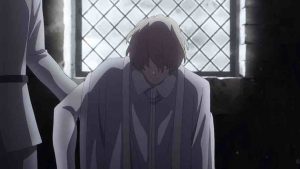

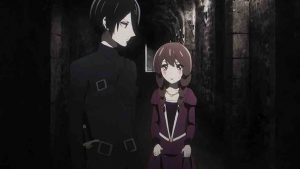
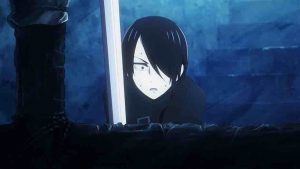
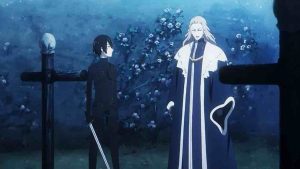
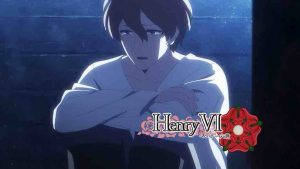
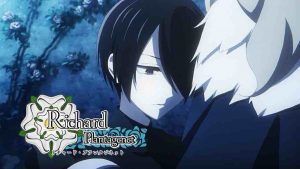
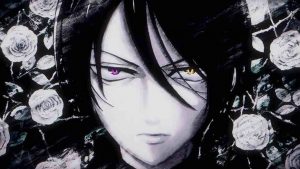
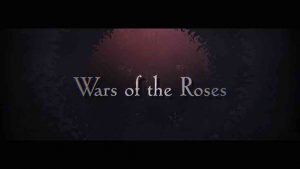
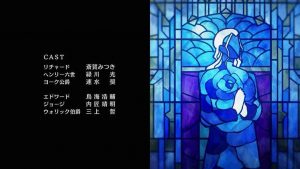
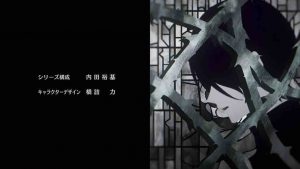





Toni
January 10, 2022 at 6:01 pmIt felt lika a gothic Heike Monogatari. Only uglier and even more difficult to follow (even knowing the story)
Guardian Enzo
January 10, 2022 at 6:09 pmIt was fast, but with a 16 volume manga depicting a 32-year war going into 12 eps, I expected that. I don’t know the manga so have no attachment there, but I know the actual history pretty well and didn’t have any trouble following it.
Dop
January 10, 2022 at 6:18 pmDon’t know where you saw this was only 12 episodes, as I’d always heard it’s 24 episodes.
That’s what ANN said and what Funimation say… https://www.funimation.com/shows/requiem-of-the-rose-king
Guardian Enzo
January 10, 2022 at 6:50 pmMAL has it at 12., which is what I was going on. Split cour, maybe?
Derrick
January 10, 2022 at 8:49 pmAn interesting period because firearms are still in nascent popularity (although blast furnace adoption has speed it up somewhat) and seeing cavalry vs arquebuses will be a treat.
Collectr
January 10, 2022 at 10:19 pmI like the series too, but I also understand why many viewers will have a tough time with it. The first episode introduced a lot of characters at a breakneck pace. If you’re not seriously familiar with the actual history (or the manga), it would be very confusing. For example, Richard’s brief encounter with Edmond in prison comes and goes in no time. Who is Edmond, and why does he react to Richard that way?
I found the visuals appropriate to the grim context of the story. The contrast of Richard as a near black-and-white figure to his blond, blue-eyed father and brothers is an effective visual metaphor for his difference, isolation, and self-loathing. While Shakespeare’s Richard cheerfully acknowledges his blackguard heart (“And therefore… I am determined to prove a villain…”), this Richard desperately wants acceptance and approval but knows it is out of reach. This irrepressible conflict, not a predetermined bent to villainy, will drive the story.
Guardian Enzo
January 10, 2022 at 10:27 pmI get that, believe me. In the show’s defense Richard did basically say who Edward was, but I get it if that whizzed by people.
Even if it does turn out to be two cours the pacing is obviously going to be blistering, and if you’re not conversant with the history I could see that being a real issue. All I can do is share my own reflections on it.
bikikax
January 10, 2022 at 11:12 pmThe manga actually ended just a couple of days before the first episode of the anime aired.
Guardian Enzo
January 11, 2022 at 6:48 amThat’s a positive, then.
Ronbb
January 12, 2022 at 10:47 amI find this show the most interesting. In a way, it’s like Kingdom — it has a fascinating history to base its story on. It will depend on how the staff tell this wonderful story, but I’ll be sticking around.